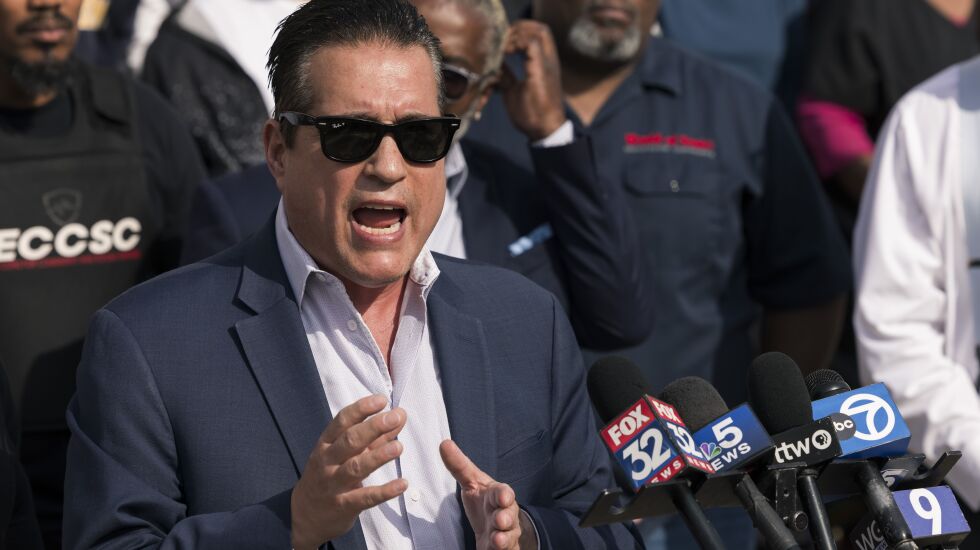
South Shore residents have re-filed a lawsuit that aims to stop the city from housing asylum-seekers in public buildings such as police stations and schools.
The lawsuit, filed Sept. 26 by Natasha Dunn, Jimmy Darnell Jones and other residents, seeks wider relief in addition to their initial case filed in May which sought to stop the former South Shore High School from being turned into a shelter for migrants. It names the city of Chicago, Mayor Brandon Johnson and Chicago Public Schools as defendants.
The residents voluntarily dropped the first lawsuit after learning the former high school wouldn’t be used to house asylum-seekers, who have been arriving by bus from Texas since last year.
But after hearing that thousands of migrants would continue to be sent to Chicago, the South Shore residents filed a broader lawsuit in Cook County circuit court, said Frank Avila, an attorney representing the residents.
Chicago has scrambled to find housing for the more than 17,000 migrants who have arrived in the city since August 2022. Mayor Brandon Johnson plans to establish giant tent cities, or “winterized base camps,” to house new arrivals.
The lawsuit argues that the use of public buildings as migrant housing is a nuisance to the community, and it also accuses the city of violating zoning ordinances around the former high school and other public areas.
The suit calls for an audit of city funding used for migrants and related housing.
“The city does not comment on pending litigation,” law department spokesperson Kristen Cabanban said.
The new lawsuit adds claims that the city’s move to turn police stations into makeshift shelters, where migrants have been sleeping on floors for months, violates federal Occupational Safety and Health Administration standards.
“They should not be in parks and floors and schools. They should be in residential housing, whether that’s hotels or hostels or apartments or houses or some kind of group living facility,” Avila told the Sun-Times. “It’s not sanitary, it’s not residential living, it’s not humane for the people living there.”

Some people in South Shore, along with residents in other neighborhoods such as Woodlawn, feel they have been excluded from providing input on the city’s plan to use public buildings for migrant housing.
“This is a pro-migrant, pro-immigrant message,” Avila said of the plaintiffs’ intentions. “But also, a lot of my clients I’m representing, they feel that they’ve been underrepresented, underinvested and they want a similar investment into their community.”
The shuttered South Shore High School, at 7627 S. Constance Ave., has not been converted into housing for migrants despite a city contract with Chicago Public Schools to do so.
“For that extent we have been successful, but we don’t want to let our guard down,” Avila said. “But moreover, we want these people to be taken care of properly.”
He also highlighted the need for more help from the federal government to support housing for migrants.
“We want to help these people, but they should not be primarily in the two cities of Chicago and New York or a few places,” Avila said. “There’s 300-plus municipalities in the United States, as well as small towns, suburbs, rural areas, military bases etc and we should spread people out where not one city is bearing the brunt of the cost.”
A hearing on the case is scheduled for Nov. 27.







